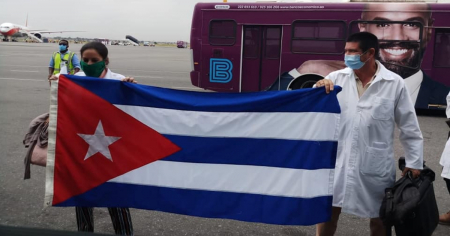
Related videos:
The Metropolitan Bank announced that, starting April 1, 2025, it will no longer provide printed receipts for cash transactions.
The Metropolitan Bank assures that this measure responds to the increasing use of new technologies as a means of verification. The decision to eliminate receipts was reported by Tribuna de La Habana and confirmed by the institution itself.

Starting from that date, Corporate Banking clients will need to consult and reconcile their transactions through the "Metropolitano en Línea" service, while individual clients can do so using the digital platforms Transfermóvil, EnZona, and at ATMs.
However, the reality in Cuba is far from the scenario that justifies this decision. In a country where access to the internet is irregular, expensive, and, for many, unattainable, this measure excludes a significant portion of the population, especially the elderly and those who do not own mobile phones or are not proficient in using these applications.
Social media comments reflect users' dissatisfaction and concerns. Many Cubans point out that, rather than facilitating procedures, Banco Metropolitano complicates the daily lives of citizens by imposing a forced digitalization without basic conditions.
Many users are wondering what will happen to the elderly who have no family to assist them or who cannot adapt to technology. Others claim that the real reason for the measure is not technological advancement, but rather the lack of paper and ink in banks, a shortage that has become common in the country.
Dissatisfaction also points to the malfunctioning of ATMs, which are often out of service or lack cash, as well as the limited availability of staff at branches, leading to endless queues and widespread frustration.
While the Banco Metropolitano is betting on a technological transformation that not all Cubans can afford, the perception of neglect and disconnection between the financial institutions and the real needs of the population is growing.
The measure will come into effect without any alternatives being provided for those who will be excluded from the digital process, once again highlighting the disconnect between institutional decisions and the daily lives of Cubans.
Frequently Asked Questions About the Changes at Banco Metropolitano and Their Implications in Cuba
What changes will the Banco Metropolitano implement starting April 1, 2025?
The Metropolitan Bank will stop issuing printed receipts for transactions at the counter. Customers will need to consult and reconcile their transactions through digital platforms such as "Metropolitano en Línea," Transfermóvil, and EnZona, or at ATMs. This measure has faced criticism due to the limited internet accessibility in Cuba.
How does the elimination of printed receipts affect older adults and individuals without access to technology?
The elimination of printed receipts excludes a significant portion of the population, particularly older adults and those who do not own mobile phones or are not proficient in using digital applications. This poses a considerable challenge in a country where internet access is limited and expensive.
What are the main criticisms from Cubans regarding this measure by the Banco Metropolitano?
Cubans criticize that the Metropolitan Bank complicates daily life by imposing forced digitalization without the necessary minimum conditions. Additionally, they point out that the true reason for the measure could be the lack of paper and ink in the banks, rather than a genuine technological advance.
What problems is the Cuban banking system currently facing?
The Cuban banking system is facing a liquidity crisis, technological issues, and poor implementation of banking services. This has resulted in long lines, limits on cash withdrawals, and a disconnect between institutional decisions and the actual needs of the population.
Filed under:





